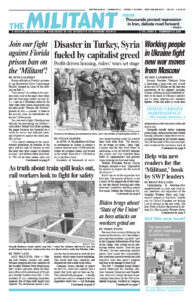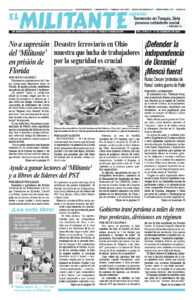HALF MOON BAY, Calif. — As you drive into this small town on the California coast south of San Francisco, you see tree nurseries, flower greenhouses and mushroom farms, all crops the area is famous for. You also see the shacks, broken down trailers and other ramshackle housing that many workers who tend these crops are forced to live in.
When seven mushroom workers were killed by fellow farmworker Chunli Zhao Jan. 23 at two different farms, it put a spotlight on the conditions many workers here face.
At Terra Garden, the farm where Zhoa worked and lived, workers were housed in rundown trailers, shacks, a shipping container. Bathrooms were port-a-potties. The workers, Chinese and Latino, earned $9 an hour, below the minimum wage. Zhoa began the shooting rampage after his supervisor demanded he pay $100 to repair a damaged fork lift.
There are laws prohibiting such abuse, but as United Farm Workers union Communications Director Antonio De Loera-Brust told NBC News, they aren’t enforced. If you complain, there’s always the threat of a call to the U.S. Immigration and Customs Enforcement agency, the government’s deportation police.
“A lot of them are living on site. That’s another point of leverage. Your boss is also your landlord,” De Loera-Brust said.
On Feb. 11 this Socialist Workers Party member and party supporters visited Half Moon Bay to talk with workers.
We spoke with Maria Amezqua, who worked for 15 years at a flower farm and most recently at a donut shop. The flower job was the hardest, she said, made worse by the fact workers lacked papers.
Her family has been one of the lucky ones, she said, securing a home in a housing project built especially for farmworkers. For many others the situation is becoming impossible, with rents in the area climbing and the waiting list to get into the housing project growing.
When we raised the need to strengthen the unions, and for the unions to fight for amnesty for immigrant workers without papers, Amezqua agreed. Fighting to end the abuse of workers who lack papers is in the interests of all working people, we said. It’s necessary to unite workers to take on the bosses.
Contributing to the housing crisis is Half Moon Bay’s proximity to Silicon Valley. Tech employees working from home are moving in, driving up rents. Others, drawn to the beauty of this town nestled between the ocean and coastal mountains, are buying up real estate for second homes used only in the summer.
Half Moon Bay is Exhibit A for why working people need unions, and a labor party based on those unions, to defend ourselves and fight to establish a government in the interests of workers and farmers.
Farmers in the agricultural communities here and nearby are being squeezed. Billionaires are buying up the land, pushing up land prices. Competition from crops grown in other states and abroad, where costs are lower, has cut down the number of farmworker jobs and made it harder for small farms to survive.
We went by the home of the Serrano family to pay our respects to this brave family who helped organize protests against the brutal cop killing of their mentally ill daughter, Yanira, in 2014. We found the house sandbagged, furniture stacked up on tables inside and workers fixing it, because it had been flooded in recent heavy storms. Other homes nearby had also flooded, as well as a school.
At least 21 people in California were killed in the floods created by the heavy rains. In Half Moon Bay, Watsonville and other nearby towns workers and farmers bore the brunt.
Rising housing costs have forced workers to move to more dangerous areas, nearer to streams and floodplains. Many find it difficult to recover from flood damage. Farmworkers lost pay when there was no work because of rain-drenched fields.
The government bureaucracies set up to distribute aid are hard to negotiate, especially for those without papers. This just underlines once again the importance of the fight for amnesty.

